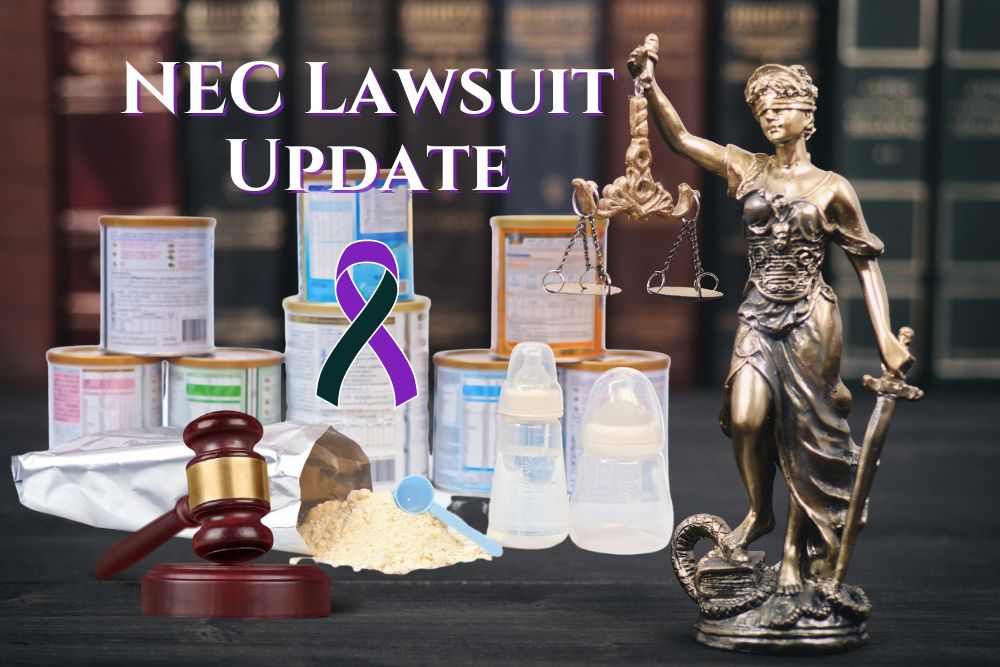

Understanding NEC: What Every Parent Should Know
Necrotizing Enterocolitis, or NEC, is a condition that affects premature infants, and it’s important for parents to know what it is and how it could impact their child. NEC causes inflammation in the intestines, which can sometimes lead to tissue damage, infection, or even life-threatening complications. But what exactly does this mean for you and your baby?
Premature infants, especially those born before 32 weeks, are more vulnerable to NEC. The condition is rare but serious, affecting roughly 10% of premature infants with very low birth weight, according to medical research. This can be frightening, but understanding NEC and knowing what to look for can help parents feel more prepared.
What are the causes and risk factors? While the exact cause of NEC remains unknown, experts suggest a few potential contributors, including formula feeding, which may increase the risk. For this reason, parents of premature infants should stay informed about the signs, symptoms, and potential steps to reduce their baby’s risk. In the sections that follow, we’ll look closer at the early signs of NEC, risk factors, and the potential link between baby formula and NEC to help you stay vigilant and informed.

Recognizing the Early Signs of NEC
One of the most important steps in protecting your baby is recognizing the early signs of NEC. The sooner NEC is identified, the more likely it is that prompt treatment can help reduce severe complications. But what should parents look out for?
- Abdominal Distension and Tenderness
A swollen or tender belly is one of the primary signs of NEC. If your baby’s stomach looks bloated or feels hard to the touch, it’s worth paying attention and consulting with a healthcare provider. - Feeding Intolerance
If your baby has trouble feeding, especially if they seem to reject feedings suddenly or spit up more frequently, this could be a warning sign of NEC. Feeding intolerance is often an early indication that something isn’t right. - Changes in Stool Color and Consistency
Unusual changes in stool color, especially dark or bloody stool, may point to digestive issues, including NEC. Consistent observation of your baby’s stool can offer early clues. - Vomiting
While some spit-up is normal for infants, excessive vomiting can signal something more serious, especially if it is paired with other symptoms. - Temperature Instability
Premature babies with NEC may struggle to maintain a stable body temperature. Frequent temperature fluctuations, either high or low, are signs that something could be wrong. - Lethargy or Irritability
NEC can make babies feel unwell, leading to changes in behavior. Look out for unusual lethargy, or if your baby seems more irritable than usual without a clear cause.
If you observe any of these symptoms in your baby, reach out to a healthcare provider promptly. Understanding these early signs could make a critical difference, helping parents act swiftly to protect their baby’s health.

Risk Factors Associated with NEC
Understanding the risk factors for NEC is key to helping prevent or reduce its chances of developing in premature infants. Parents of preterm babies may feel overwhelmed, but knowing what puts a baby at higher risk can empower you to take proactive steps and ask the right questions. So, what makes some infants more vulnerable to NEC?
Prematurity
Babies born before 32 weeks of gestation have a higher risk of NEC. The digestive systems of premature infants are often underdeveloped, making them more susceptible to infections and conditions like NEC. Nearly 90% of all NEC cases occur in preterm babies, highlighting how critical gestational age is as a factor.
Low Birth Weight
Babies with very low birth weight, typically less than 1,500 grams (3.3 pounds), are also more prone to developing NEC. This is often due to the added strain on their digestive and immune systems as they adjust to life outside the womb.
Formula Feeding, Particularly Cow's Milk-Based Formulas
Studies have shown that preterm infants fed cow’s milk-based formula are at a greater risk of NEC compared to those fed breast milk. Breast milk is easier for a baby’s digestive system to process and contains antibodies that help protect against infections. Because of this, healthcare providers often recommend breast milk, either from the mother or a donor, as the best choice for preemies.
Use of Umbilical Catheters
In some cases, the use of umbilical catheters, which are often necessary in neonatal care, may increase the risk of infections that could contribute to NEC. Parents can ask their healthcare provider about any associated risks and benefits if their baby requires a catheter.
Prolonged Antibiotic Use
While antibiotics can be lifesaving for preemies, prolonged use has been linked to an increased risk of NEC due to possible effects on the baby’s gut bacteria balance. If your baby requires antibiotics, discussing this risk with a healthcare provider can provide valuable insights into their overall care plan.
While these factors can seem daunting, understanding them can empower parents to stay informed, ask essential questions, and make well-rounded decisions about their baby’s care. Knowing the risks enables you to stay vigilant, especially during those critical early weeks.
Self-Assessment: Is Your Baby at Risk?
If you’re a parent of a premature baby, you might wonder if your child could be at risk for NEC. While no one can predict with certainty, understanding and assessing risk factors can help you take proactive steps. Here’s a checklist to help you evaluate the likelihood and make informed decisions.
Checklist of Risk Factors
Consider the following factors. Does your baby have one or more of these risk markers?
- Was your baby born before 32 weeks?
- Does your baby weigh less than 3.3 pounds?
- Is your baby being fed with a cow’s milk-based formula?
- Does your baby have an umbilical catheter or require frequent antibiotics?
Answering yes to any of these questions may indicate a higher risk of NEC. This checklist is not definitive, but it’s a helpful way to start conversations with healthcare providers.
Questions to Ask Your Healthcare Provider
It’s essential to stay informed. Here are a few questions to consider asking:
- “Are there safer feeding options for my baby?”
- “Can you help monitor for early signs of NEC?”
- “Are there specific steps I should take if my baby has a catheter or is on antibiotics?”
Your healthcare provider can offer guidance based on your baby’s unique situation, and these questions will give you a foundation for making educated decisions.
When to Seek Immediate Medical Attention
If you notice any early signs of NEC—such as abdominal distension, feeding intolerance, or unusual irritability—reach out to a healthcare professional right away. NEC can escalate quickly, and prompt medical intervention can make a significant difference in outcomes.
Taking the time to understand and assess your baby’s NEC risk factors equips you with the knowledge to be proactive, ask important questions, and seek medical help when needed. Remember, you’re not alone, and healthcare providers are there to support you every step of the way.

How Are Baby Formulas Linked to NEC, and What Should Parents Know?
The connection between cow’s milk-based formulas and Necrotizing Enterocolitis (NEC) is raising alarm among parents and healthcare providers. Research suggests that premature infants fed certain cow’s milk-based formulas may face a significantly higher risk of developing NEC than those who are breastfed. What factors contribute to this heightened risk, and what should parents be aware of?
What Does Research Say About Formula and NEC Risk?
Over the past decade, studies have increasingly shown that premature infants fed exclusively with cow’s milk-based formulas may have up to a 10 times higher risk of developing NEC compared to infants who are fed breast milk. Unlike formula, breast milk provides antibodies and probiotics that are beneficial for premature babies’ fragile digestive systems, offering protection that formula feeding may lack.
Which Formulas Are Under Legal Scrutiny?
In recent lawsuits, two popular formulas—Similac and Enfamil—are central to parents' claims, as they have been linked to NEC cases in premature infants. Plaintiffs argue that these formula manufacturers failed to warn consumers about the increased NEC risk associated with cow’s milk-based products for preterm infants. As these legal cases gain momentum, they raise a pivotal question: Should formula companies be held accountable for the risks associated with their products?
Why Might Cow’s Milk-Based Formulas Increase NEC Risk?
Premature infants can struggle to digest cow’s milk-based formulas, which can inflame the delicate lining of their intestines. Unlike breast milk, cow’s milk lacks essential growth factors and immune-boosting components, making it harder for preterm babies to process and potentially leading to severe digestive complications, including NEC.
For parents of preterm infants, these findings underscore the importance of discussing feeding options with healthcare providers. Being aware of the risks associated with cow’s milk-based formulas allows parents to make informed decisions, potentially helping to reduce their child’s risk of NEC.

Legal Implications: Understanding Your Rights
If your baby has developed NEC after being fed cow’s milk-based formula, you may be entitled to legal recourse. Numerous parents across the country are filing lawsuits against formula manufacturers, arguing that they were not adequately warned about the risks these products pose to premature infants. Here’s what you need to know about your rights and the legal process.
Overview of Current Lawsuits Against Formula Manufacturers
Several lawsuits have been filed against major formula companies, including those that produce Similac and Enfamil, claiming that these manufacturers failed to warn consumers about the potential link between their formulas and NEC in preterm infants. These lawsuits highlight concerns that the companies prioritized profits over safety by continuing to market their products to hospitals and parents without adequate risk disclosure.
Criteria for Joining a Lawsuit
If you believe your child developed NEC due to cow’s milk-based formula, you may qualify to join a class-action lawsuit. Typically, the criteria include proving that your baby:
- Was born prematurely
- Was diagnosed with NEC after consuming the formula
- Suffered serious health complications or injuries as a result
An attorney experienced in these cases can help review your situation and determine your eligibility.
Potential Compensation for Affected Families
If the court rules in favor of the plaintiffs, affected families may receive compensation for medical expenses, ongoing care, pain and suffering, and other damages. This compensation can help cover the extensive costs associated with NEC treatment and recovery, which can be significant.
Pursuing a lawsuit may feel overwhelming, but many law firms offer free consultations and work on a contingency basis, meaning you only pay if they successfully win your case. Knowing your rights empowers you to seek justice and potentially receive support for your family’s recovery journey.
Steps to Take If You Suspect NEC
If you suspect that your baby may be showing signs of NEC, it’s crucial to act quickly. Prompt medical attention and careful documentation can make a substantial difference in both your baby’s health and your legal rights if you choose to pursue a claim. Here’s a step-by-step guide on what to do if NEC is a concern.
Seek Immediate Medical Attention
If your baby displays symptoms like abdominal distension, feeding intolerance, or lethargy, contact a healthcare provider immediately. Early intervention can help manage the condition and may prevent severe complications.
Document Symptoms and Medical Care
Keeping a detailed record of your baby’s symptoms, treatment, and medical visits can provide critical evidence if you decide to join a lawsuit. Take notes on any symptoms your baby exhibits, such as vomiting or temperature instability, and record the dates and times of any medical care or consultations.
Preserve Evidence
If your baby has been formula-fed, retain any packaging, receipts, or product information for the formula in question. This evidence may be necessary if you decide to participate in a lawsuit, as it helps establish the link between the formula and your baby’s condition.
Consult with a Specialized Attorney
Connecting with an attorney who specializes in NEC cases can be invaluable. They can help assess whether you qualify for compensation and guide you through the legal process. Many firms provide free consultations, giving you an opportunity to discuss your options without upfront costs.
Taking these steps not only helps safeguard your baby’s health but also strengthens your legal standing should you choose to pursue justice against formula manufacturers. Quick action and careful documentation can give you peace of mind, knowing you’ve done all you can to protect your child.
Prevention and Alternative Feeding Options
For parents of premature infants, feeding choices can significantly impact health outcomes. With the potential risks of cow’s milk-based formulas linked to NEC, understanding safer alternative feeding options is essential. Here are some considerations that may help protect your baby’s health.
Benefits of Breast Milk for Premature Infants
Breast milk is considered the safest option for preterm babies, as it contains protective antibodies, enzymes, and growth factors that support a developing digestive system. Studies show that breast milk can significantly reduce the risk of NEC, providing essential nutrients that are easy for a preemie’s system to process. If possible, breast milk is often the first choice recommended by healthcare providers for its protective qualities.
Donor Milk Programs
If breastfeeding is not an option, donor milk programs can provide access to breast milk from screened and approved donors. Many hospitals offer donor milk as an alternative to formula, especially for premature infants at higher risk. While this option may have an associated cost, some insurance providers cover it for at-risk infants.
Specialized Preterm Formulas
For situations where breast milk or donor milk is not available, specialized preterm formulas designed with easier-to-digest ingredients may be a safer alternative. Some of these formulas are specifically designed to mimic the nutritional benefits of breast milk, providing a balanced option for babies who cannot receive breast milk directly.
Choosing the best feeding option can feel overwhelming, but understanding the benefits and risks allows you to make informed decisions in collaboration with healthcare providers. By opting for breast milk, donor milk, or preemie-specific formulas, you’re giving your baby the best chance at a healthy start while potentially reducing the risks associated with NEC.
Support Resources for Families Affected by NEC
Dealing with NEC can be a challenging and emotional experience for families, but there are resources available to help you through this journey. From support groups to mental health services, these resources can provide guidance, understanding, and a sense of community for parents coping with NEC.
Support Groups and Organizations
Connecting with other families who have gone through similar experiences can be incredibly comforting. Several organizations offer support groups for families affected by NEC, providing a space to share stories, seek advice, and find comfort. Organizations like the NEC Society, March of Dimes, and other local groups provide resources, educational materials, and community forums for parents facing similar challenges.
Educational Resources
Understanding NEC and staying informed about treatment options, risk factors, and ongoing research can empower parents and caregivers. Many medical and nonprofit websites offer educational articles, videos, and webinars tailored to families dealing with NEC. These resources can help you feel more confident in advocating for your baby’s health and making informed decisions.
Mental Health Support for Parents
Caring for a baby with NEC can be incredibly stressful and emotionally taxing. Many parents experience anxiety, guilt, or exhaustion during this time. Seeking mental health support, whether through therapy, counseling, or support hotlines, can make a significant difference. Some hospitals provide access to mental health professionals trained to support parents in the NICU environment, while other options include family therapy or individual counseling services.
Remember, you’re not alone. These resources are here to support you and your family through the challenges of NEC. Reaching out to others and accessing educational tools can provide strength, resilience, and hope during a difficult journey.
How Can You Stay Informed and Take Action for Your Baby’s Health?
Navigating the risks of Necrotizing Enterocolitis (NEC) can feel overwhelming, but knowledge is a powerful tool. Understanding NEC, recognizing early warning signs, and being aware of risk factors specific to premature infants are essential steps that can make a profound difference in outcomes. Staying vigilant is especially crucial for parents of preterm babies, as early action can be lifesaving.
If you suspect that your baby may be at risk or has exhibited symptoms of NEC, seek immediate medical attention and consult your healthcare provider. Asking questions, making informed decisions, and exploring safer feeding options can reduce the likelihood of NEC. Furthermore, understanding your legal rights can provide peace of mind, empowering you to seek justice if formula-related NEC has impacted your family.
Remember, support is available. From peer groups to educational resources, you don’t have to face these challenges alone. Reaching out for guidance ensures you’re equipped to protect and advocate for your child’s health. Your vigilance and care make a profound difference, safeguarding your baby’s future and well-being.





